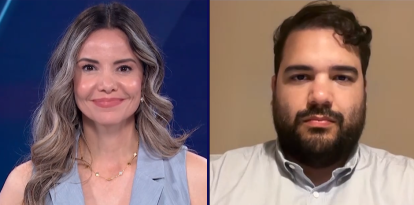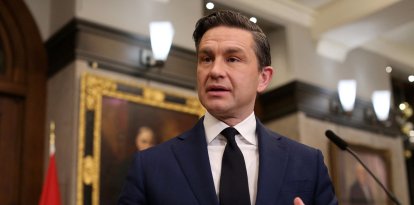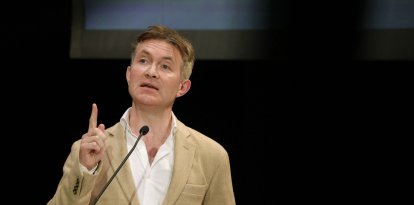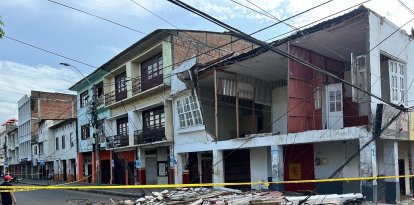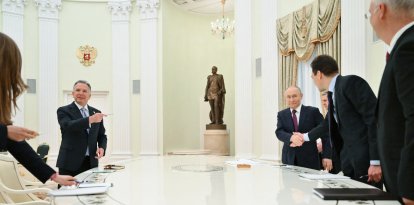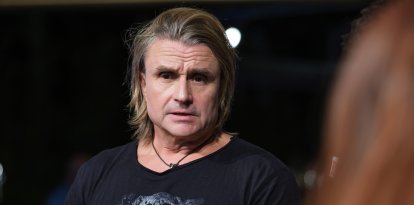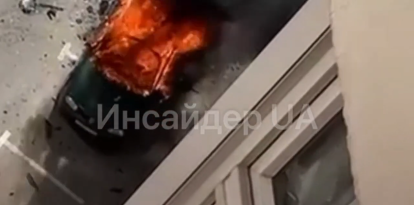Opposition and government entrenched in their positions, deepening the crisis in Georgia
Since last Thursday, the country's pro-European movements have been mobilizing against the ruling party, which postponed the EU accession process in a gesture of rapprochement with Moscow.
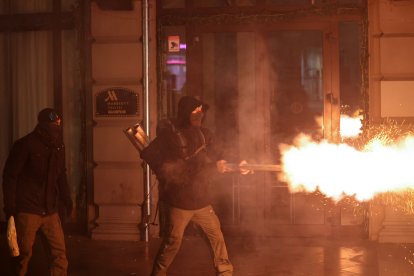
A protester throws fireworks at police in Tbilisi.
The political situation in Georgia has not lost its intensity after the pro-European president of the country, Salome Zurabishvili, announced that the mobilizations will not stop. Facing the opposition is an executive that has just won the elections again and announced that the processes of accession to the European Union will be put on pause until 2030.
"Another impressive night in which Georgians firmly defended their Constitution and their European choice," he wrote on the social network X, where he shared images of the protests the day before.
"The determination in the streets shows no signs of stopping," assured the president, who has very limited powers and is on a break with the government.
The Georgian Dream party, in power since 2012 and accused by its detractors of authoritarian pro-Russian drift, decided last week to postpone European Union accession negotiations to 2028, triggering mass protests against it, despite claiming it wants the country to join the bloc by 2030.
Membership of the European bloc is included in the Constitution of the country of 11 million people.
Georgia has been mired in a political crisis since Georgian Dream proclaimed victory in legislative elections in late October. The opposition and the president claim that fraud was committed in the elections.
224 arrested and 113 police officers injured
According to Civil Georgia data, the authorities under the Ministry of Internal Affairs have detained 224 demonstrators since the protests began last Thursday. Similarly, more than a hundred police officers are said to have been injured in clashes with opponents.
According to AFP, the Interior Ministry only declared that 21 police officers were injured in the protests and altercations the day before. National media reported on Monday strikes in schools and businesses. Universities and schools "express solidarity with protesters in all parts of Georgia," celebrated President Zurabishvili.
During the protests, the crowd chanted slogans hostile to Moscow.
Kremlin spokesman Dmitry Peskov said Monday that the Georgian government was trying to "restore calm."
He also drew parallels with the Euromaidan revolution in Ukraine in 2014, a comparison that has been widely reported in Russia's official media.
Georgia, on the shores of the Black Sea, is still heavily marred by the Russian invasion during a brief war in 2008 and by the threat of a new offensive, like the one in Ukraine.
The former Soviet republic was granted candidate status for EU membership in December 2023 but the process was frozen by Brussels, which accuses the Georgian executive of adopting measures that undermine democracy.
Government rules out holding new elections
Before the massive demonstrations, the government of Prime Minister Irakli Kobajidze announced that it will stand firm and that there will be no new elections. The last elections, although contested by the opposition, were approved by the electoral authorities and international observers, including those of the European Union.
"Of course not," the prime minister, Irakli Kobajidze, replied to journalists when asked whether the government, accused of pro-Russian authoritarian drift, would agree to organize new elections.
In this context, President Zurabishvili assured that she would stay in office "until there are new elections," despite the fact that her term of office ends at the end of December.
"Until there are new elections and a parliament elects a new president according to new rules, my mandate will continue," the president said in an exclusive interview to AFP.
RECOMMENDATION
